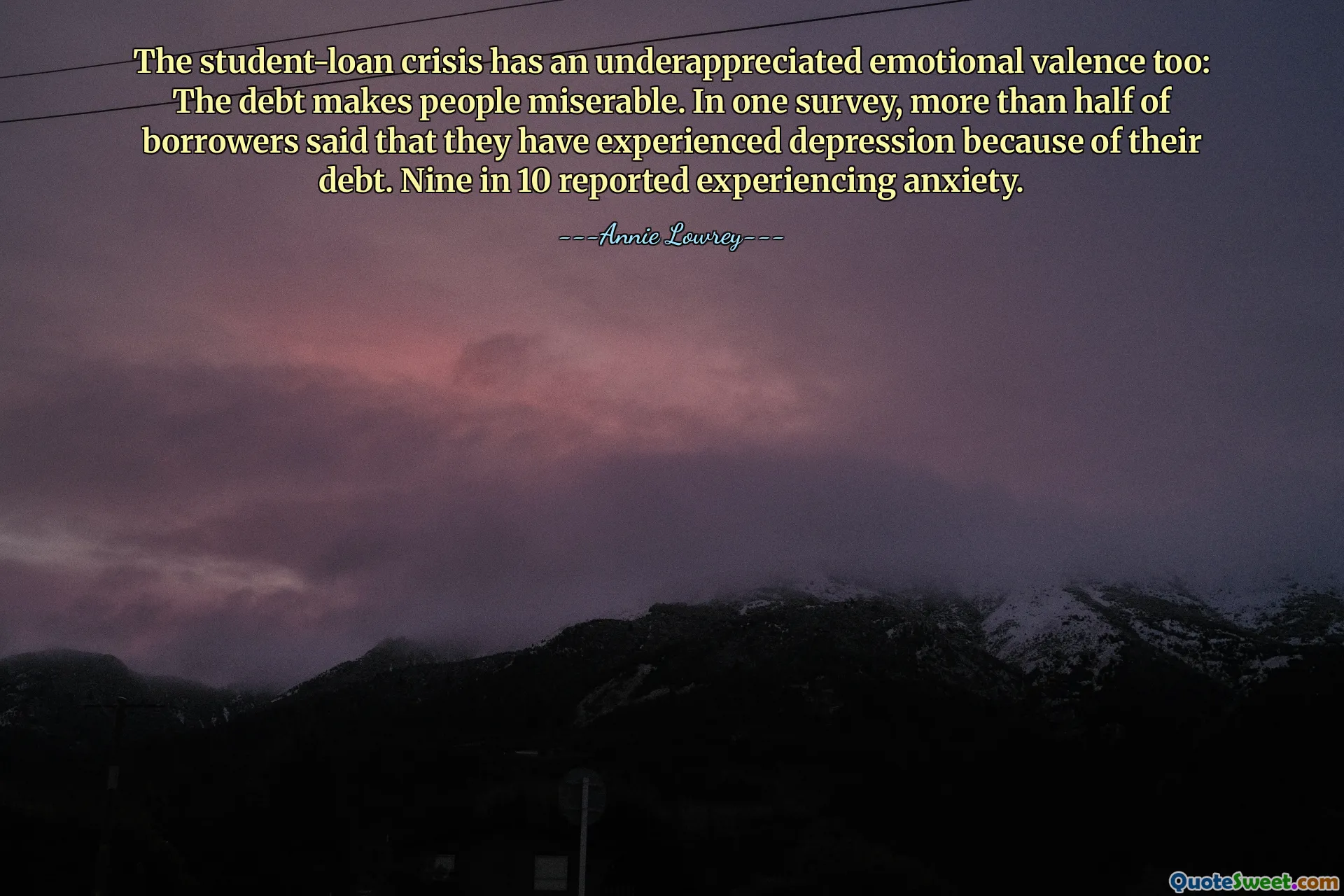
The student-loan crisis has an underappreciated emotional valence too: The debt makes people miserable. In one survey, more than half of borrowers said that they have experienced depression because of their debt. Nine in 10 reported experiencing anxiety.
📖 Annie Lowrey
The quote highlights the profound psychological toll that student loan debt can impose on individuals, extending beyond mere financial burden. Often, discussions about debt focus on the economic implications—interest rates, repayment terms, and default risks—yet the emotional and mental health consequences are less recognized but equally critical. For many borrowers, taking on significant student loans can be a source of ongoing stress, anxiety, and depression, affecting their overall well-being and quality of life.
This emotional burden stems from the persistent pressure to meet repayment obligations, uncertainty about future financial stability, and the societal expectations tied to educational achievement. The statistic that over half of borrowers have experienced depression and nine in ten have felt anxiety underscores how deeply intertwined financial struggles are with mental health issues. Such distress can impede daily functioning, hinder career advancement, and damage personal relationships.
Addressing the student-loan crisis requires a holistic approach that considers not only easing financial burdens through policy reforms but also providing mental health support for those affected. Society should acknowledge that educational debt is not just a fiscal issue but a mental health challenge that can have lasting effects. Recognizing these emotional dimensions might motivate policymakers and institutions to innovate solutions aimed at reducing stress and providing support systems, ensuring that the pursuit of higher education does not come at the expense of individuals' mental well-being.











